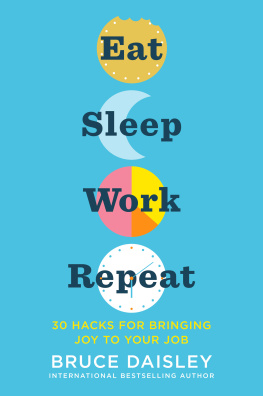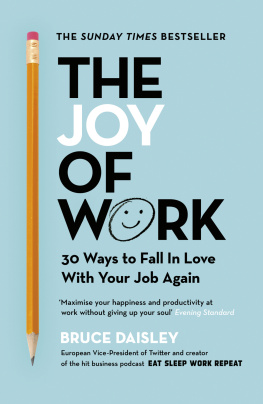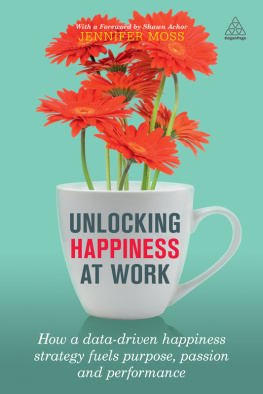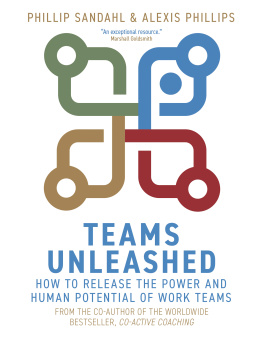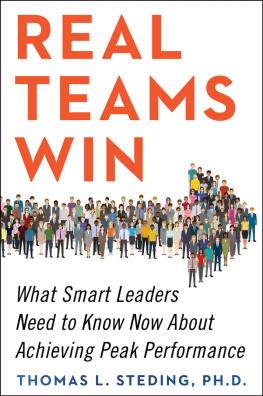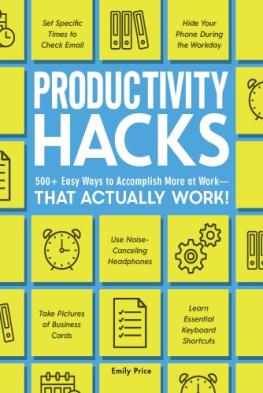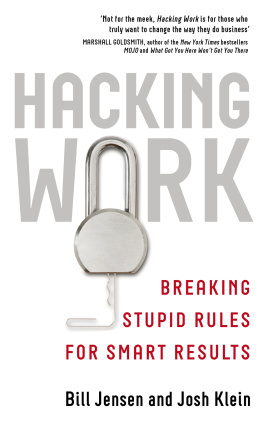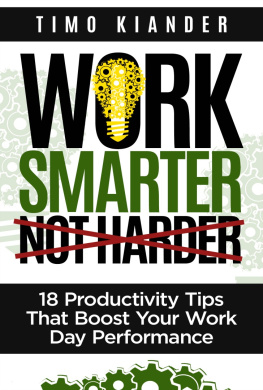Contents
Guide
Australia
HarperCollins Publishers Australia Pty. Ltd.
Level 13, 201 Elizabeth Street
Sydney, NSW 2000, Australia
www.harpercollins.com.au
Canada
HarperCollins Publishers Ltd
Bay Adelaide Centre, East Tower
22 Adelaide Street West, 41st Floor
Toronto, Ontario, M5H 4E3
www.harpercollins.ca
India
HarperCollins India
A 75, Sector 57
Noida
Uttar Pradesh 201 301
www.harpercollins.co.in
New Zealand
HarperCollins Publishers New Zealand
Unit D1, 63 Apollo Drive
Rosedale 0632
Auckland, New Zealand
www.harpercollins.co.nz
United Kingdom
HarperCollins Publishers Ltd.
1 London Bridge Street
London SE1 9GF, UK
www.harpercollins.co.uk
United States
HarperCollins Publishers Inc.
195 Broadway
New York, NY 10007
www.harpercollins.com
To Billy, Coco, and Tula
Contents
Love Where You Work
Is it reasonable to expect to enjoy your job? Thats a question many have wrestled with, often as they lie awake with anxious thoughts about an occupation that causes them daily unhappiness. If were getting paid, then maybe its unreasonable to additionally expect personal satisfaction as part of the exchange.
It goes further than that. Steve Jobs famously once argued, Youve got to love what you do. For many of us, thats just a step too far. Much easier said than done. Its one of those casual exhortations (most easily made by a billionaire) that can leave people feeling inadequate. If we should expect to love our jobs, then who is to blame if we dont? Is it our fault? Could it even be used against us? If you really wanted this job, you wouldnt be asking for more pay/saying youve got too much to do/complaining about stress. Maybe we should find someone else who really wants to work here.
Today, 83 percent of American workers report that far from making them happy, their jobs are causing them stress.
The suspicion that work used to be way more fun than it is today really does seem to have a basis in reality. Many of us dont love what we do, and we feel exhausted trying. A national survey of the workforce conducted by the survey company Gallup suggested that only 32 percent of employees were engaged in their jobs, meaning that they were highly involved in and enthusiastic about their work and workplace.
For many, the realities of work see us worn down by gnawing feelings of job insecurity and by work environments that seem to be impinging ever more on our free time as we battle to keep up with our email or glance at our smartphone on a Sunday morning in case that ping weve just heard heralds some minor emergency.
Living in a constant state of adrenalized stress can pretty soon leave us feeling depleted. In 2019, Anne Helen Petersen wrote an article that immediately became a viral sensation. In her BuzzFeed piece, she described the Burnout Generation, who were experiencing symptoms such as errand paralysis in their private lives directly as a consequence of having internalized the idea that [they] should be working all the time. As we will explore fully in this book, a growing understanding that our cognitive powers are both finite and inhibited by stress means that the way were working today is the enemy of our aspirations to be the best versions of ourselves.
When this book was first published in my native United Kingdom, it became a Sunday Times number one bestseller. Many of my American friends told me that an evidence-based focus on fixing work wouldnt succeed in the United States. I was shocked. Why? I asked. Theres just too much focus on profit, one former colleague insisted. No firm is going to encourage employees to work sustainably if it makes them less money. But in many ways, thats the point of this book. In so many ways, work is the lie we tell ourselvesyoull see clear evidence in these pages that working longer doesnt make firms more profit. Longer hours might make us feel like were doing more, but were achieving less with every second of extra toil. While we might hear business leaders such as Elon Musk boast that nobody ever changed the world on 40 hours a week, when we delve beneath the bluster, it seems that evidence gives us a different answer. Providing good jobs was more profitable than treating workers badly. Many of us, if we were to use a fresh perspective and look anew at our daily lives, would see our jobs for what they truly are. Well go on to see that average office workers are spending between two and three days a week in meetings, where they pretend to be paying attention. We waste our freshest hours sitting still in meetings, resisting the temptation to look at our phones, and then we have idiot bosses judging us for not clocking in another four or five weary hours per day to keep on top of our actual work. The evidence contained in this book can help you fix these things. In the same way that the evidence on the restorative power of sleep has transformed the argument on proper recovery in the past two or three years, the evidence on working is about to transform the way we work.
Creating a good working culture helps futureproof our workplaces. If we want to foster the creative environments that will be essential in a future world competing with and being assisted by artificial intelligence, then stress is something we need to strive to eliminate, as Ill demonstrate. Overwork isnt a competitive advantage in creative endeavors, and firms that rely on it will be swept away, shown up for their lack of inventiveness.
The path wont be straightforward; discussions of workplace culture in recent years have been distracted by misdirection and marketing. Compelling speakers such as Simon Sinek have told us to seek to answer not what we do but why we do it. Answering the question why is certainly importantas well go on to see, when we are driven by a sense of purpose, motivation isnt hard to find. But finding purpose alone doesnt seem to be the answer to making work a happier place. The teaching profession is one of the most clearly purpose-driven occupationsteachers know the answer to why they chose their vocationand yet nearly half a million American teachers move or quit the profession each year. To some extent, while answering the question why can get us up in the morning, we need to answer how for us to feel we can work sustainably in (and feel rewarded by) our jobs.
Firms have also used workplace culture as a marketing channel. Photographs of neon-colored slides cascading through offices can make our own workplace seem uninspiringly inert by contrast. In this book, I attempt to separate the aspects of company culture that can help us create meaningful work from the parts that are just hyped-up, caffeinated spin.
My own journey to unearthing the insights afforded us by workplace psychology began when I started my weekend breaks from my day job as a vice president at Twitter with running a podcast on making work better. That podcast, Eat Sleep Work Repeat, began as a passion project, and my motivation was more self-education than reaching a large audience, but the show soon became a number one business podcast in the United Kingdom (with regular excursions into the US top ten). An opportunity to pick the brains of experts in organizational psychologythe people who really understand what makes workplaces tickhelped me to start building a manifesto of changes to modern working. The response to my UK publication was extraordinary. Police forces, nurses, lawyers, and bank workers got in touch, saying how they had used the work to help improve their working lives.
I have discovered that there is no shortage of science, research, and investigation regarding what makes work more fulfilling. Its just that none of the evidence ever seems to reach people doing everyday jobs. In this book, Ive therefore distilled the wisdom of experts into thirty simple changes that people can try out for themselves or suggest at a team meeting. Some are changes Ive long been familiar with and have used successfully myself. Others are useful correctives to bad habits Id developed and that Id noticed in others. A few may seem perversely counterintuitivebut they do work.
Next page
